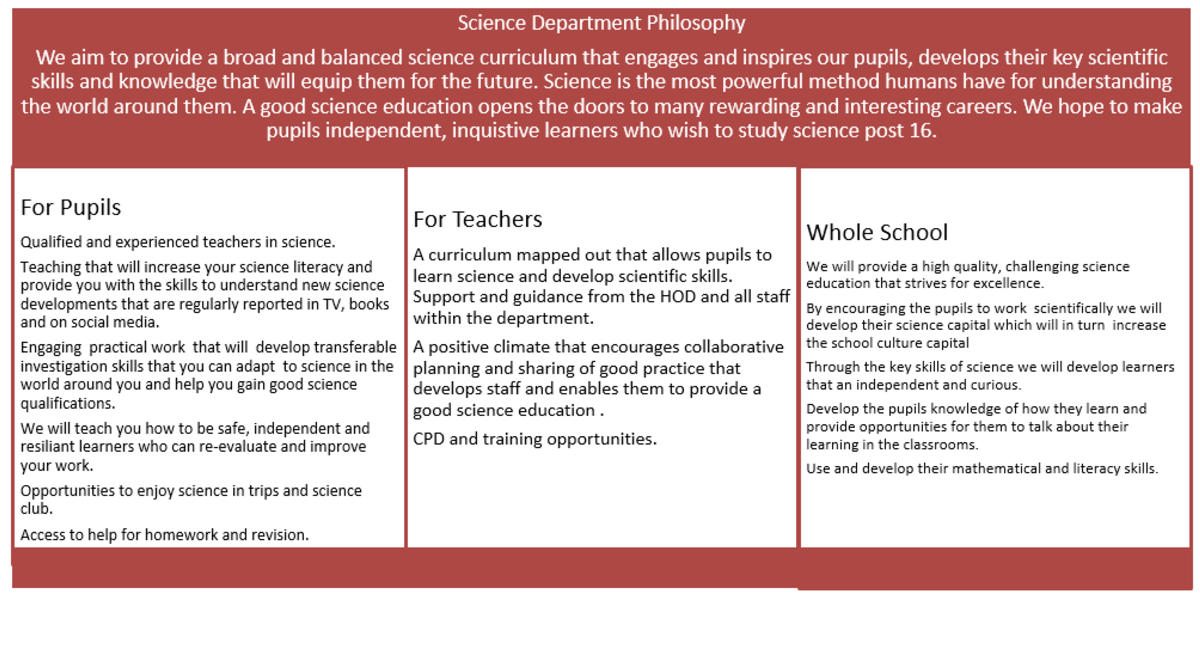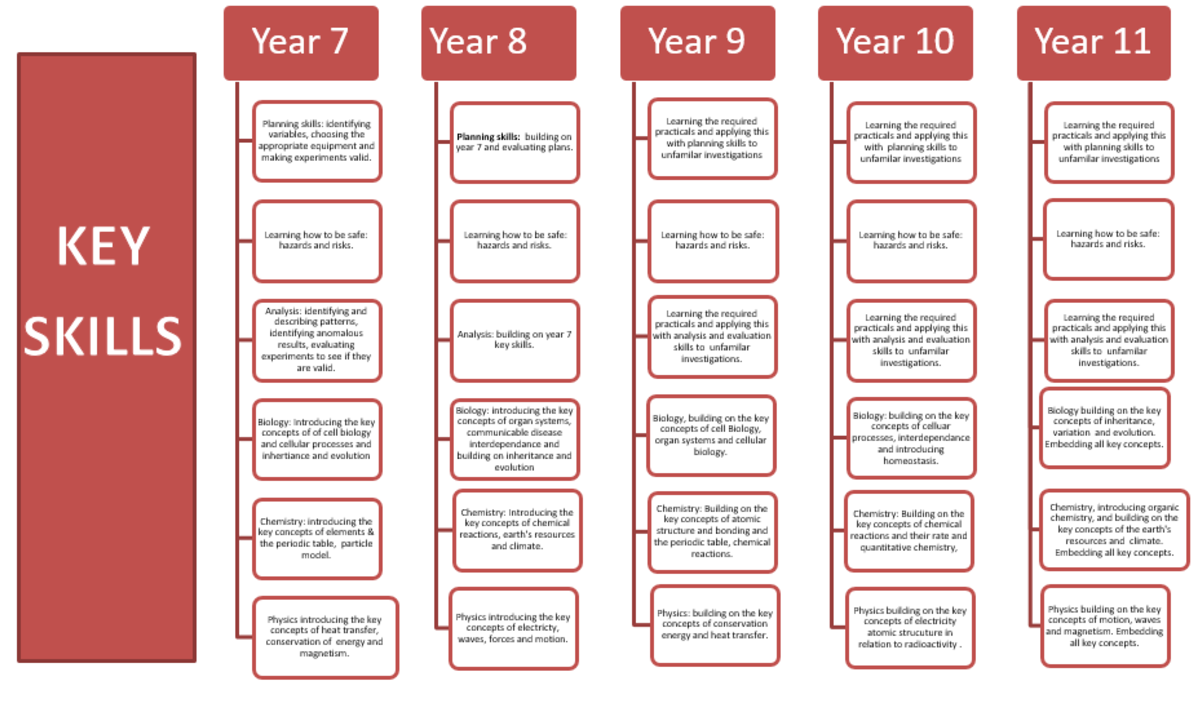- Home
- In the Classroom
- Subject Information
- Science
Science
BackScience Department Intent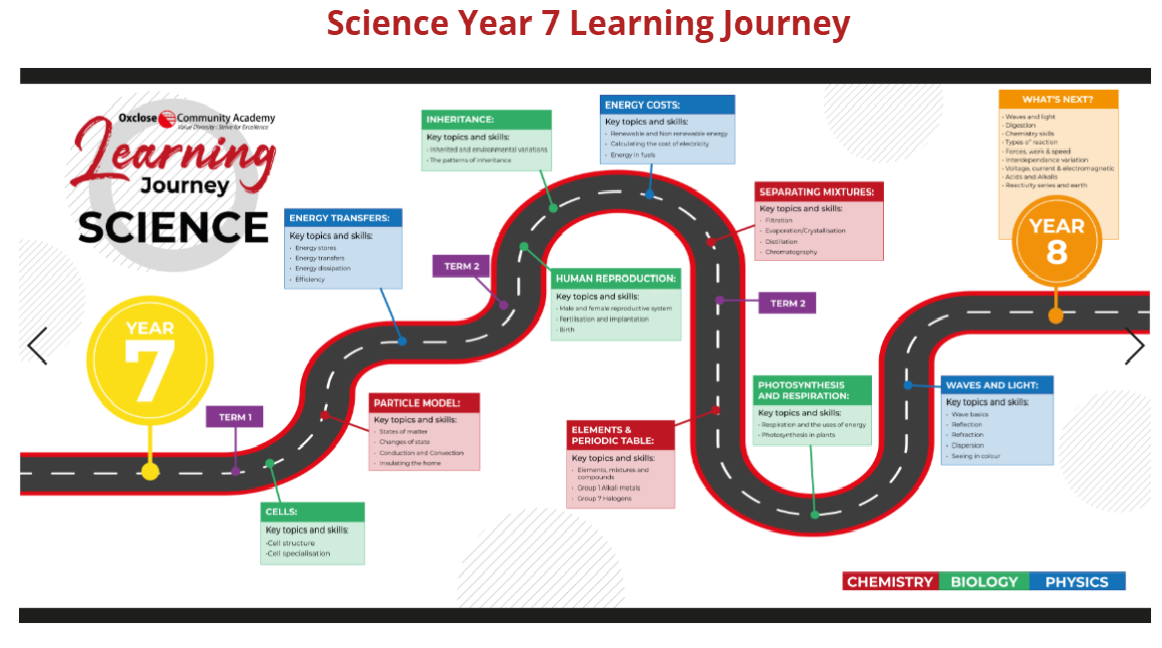
Click to download the Science Year 7 Learning Journey
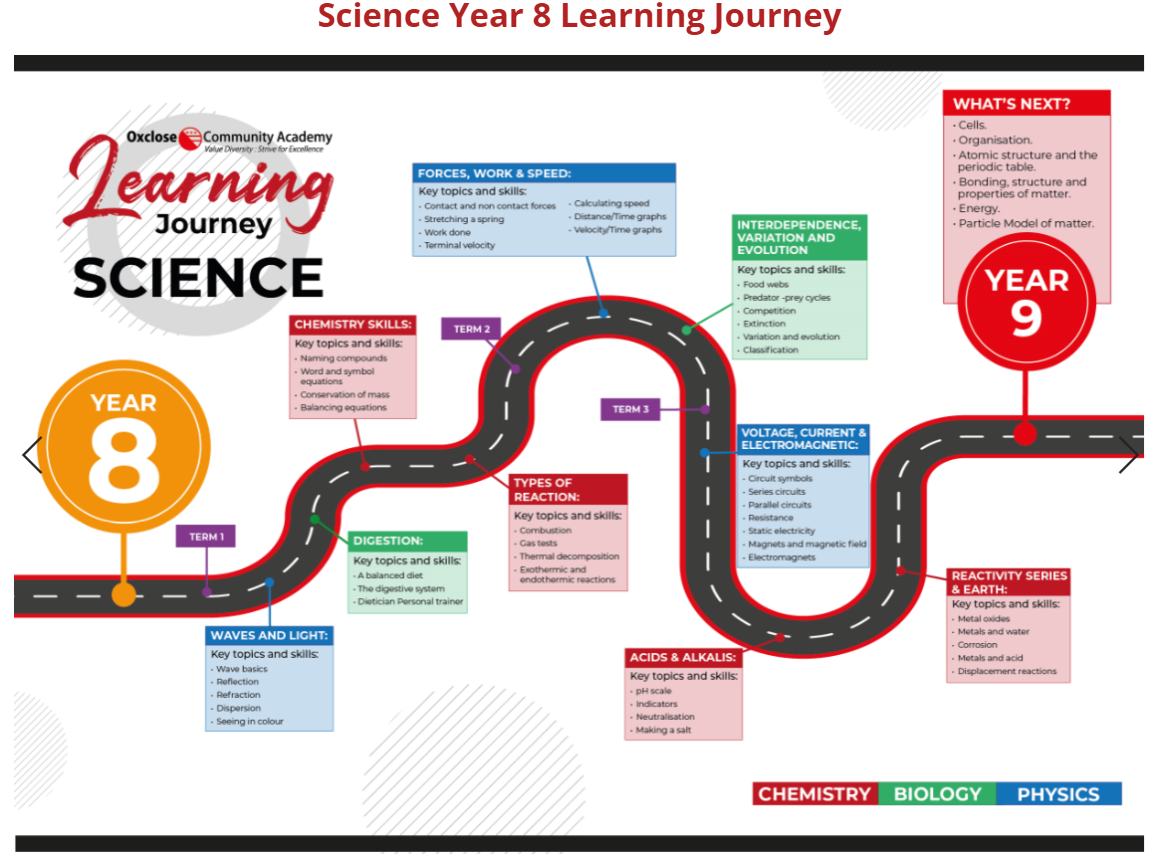
Click to download the Science Year 8 Learning Journey
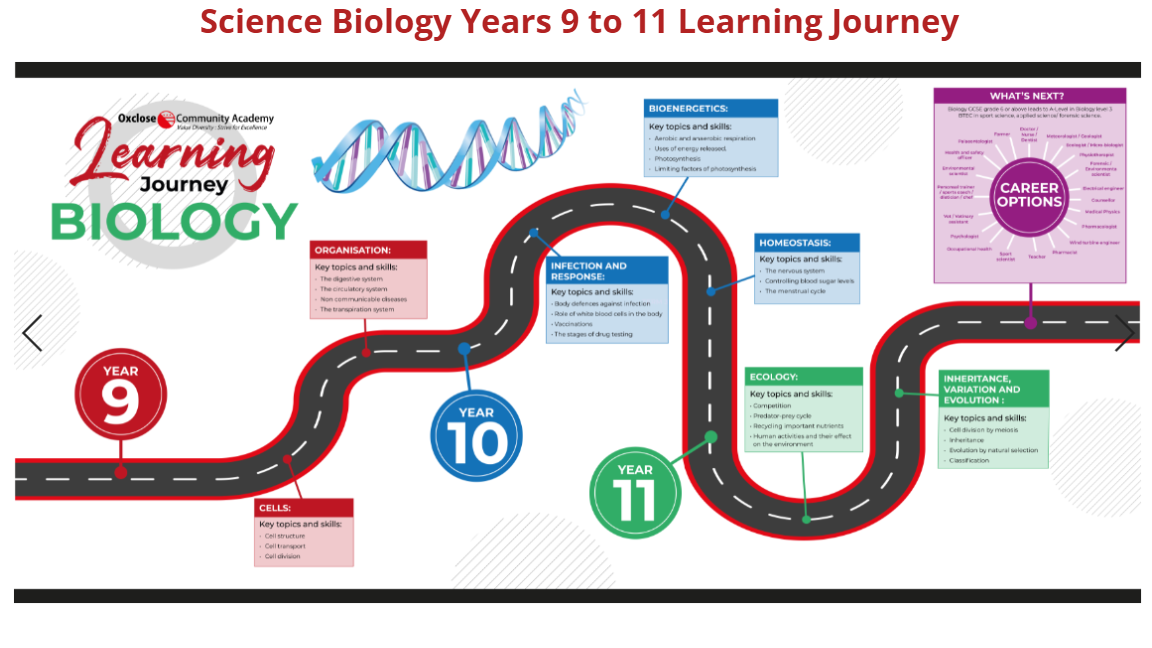
Click to download the Science Biology Years 9 to 11 Learning Journey
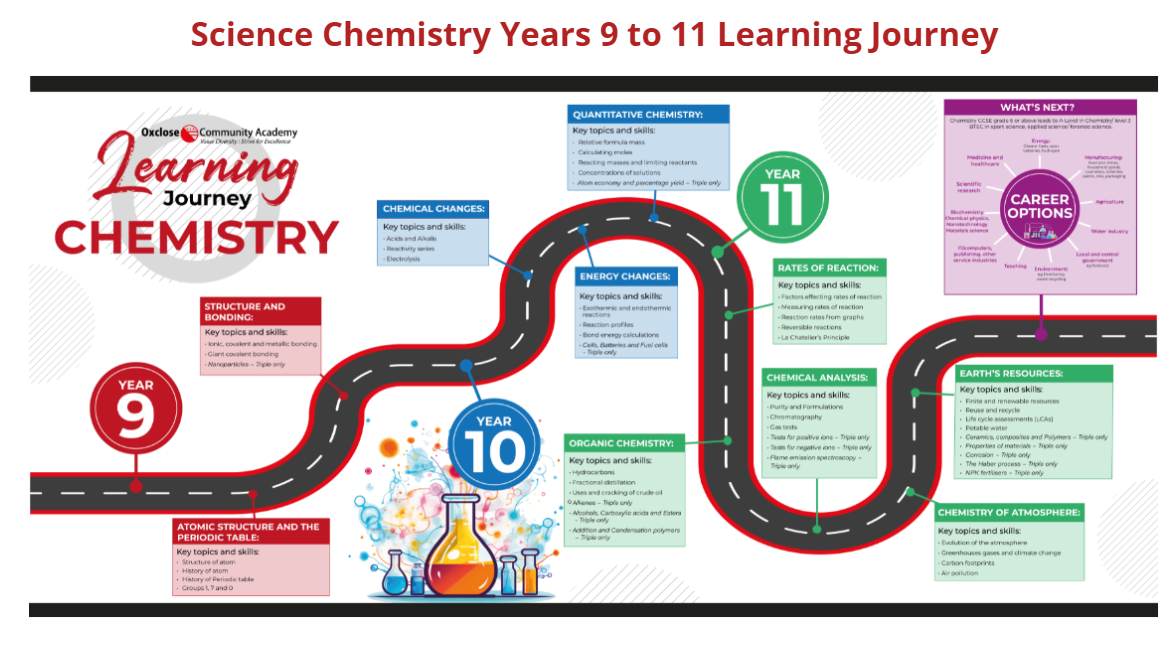
Click to download the Science Chemistry Years 9 to 11 Learning Journey
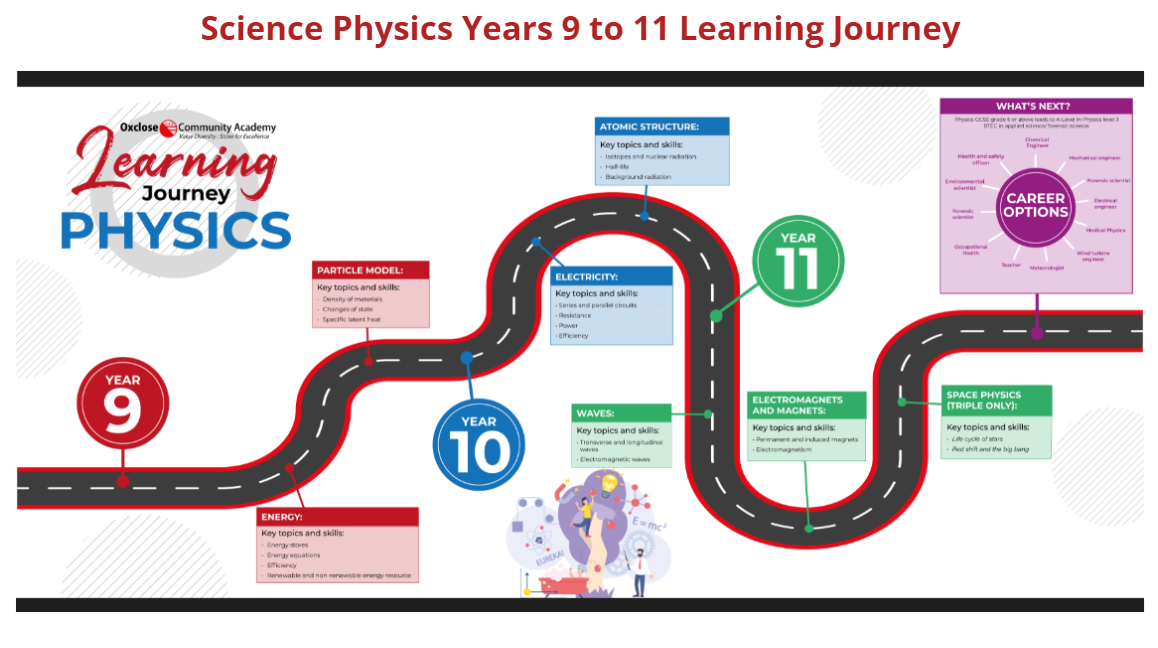
Click to download the Science Physics Years 9 to 11 Learning Journey
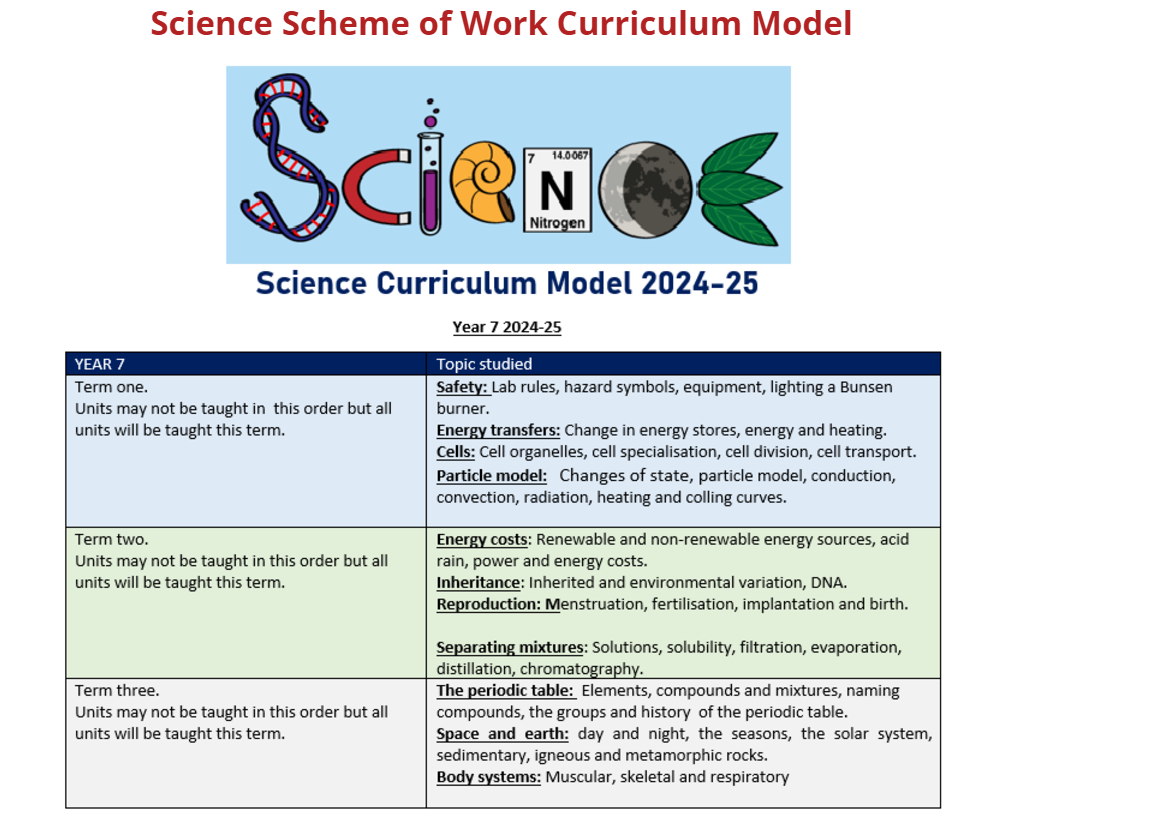
Click here to download the full Science Scheme of Work Curriculum Model - by year / module / unit
